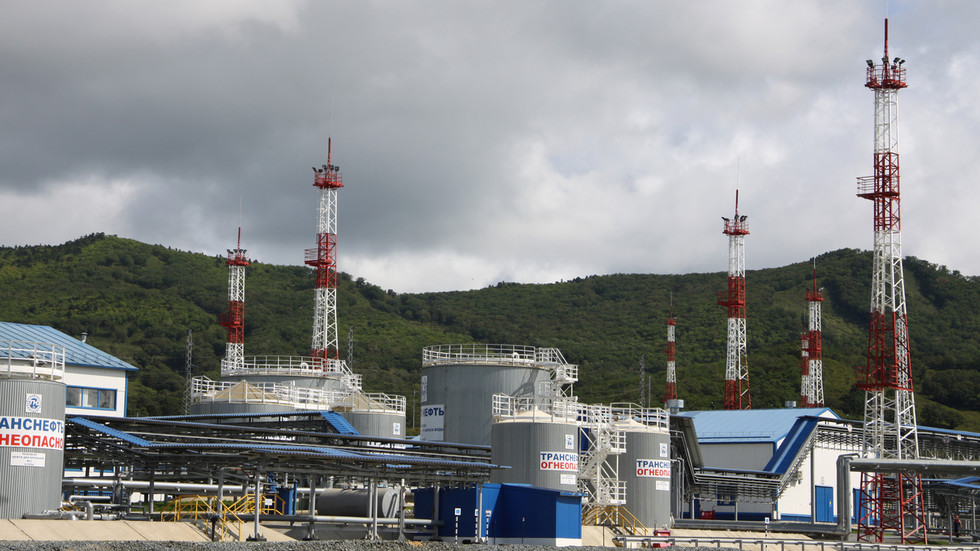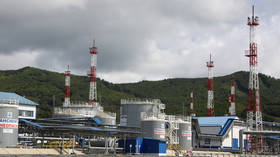
Supplies to the EU have already dropped by two-thirds, Deputy Prime Minister Aleksandr Novak says

© Sputnik / Svetlana Majorova
Russia remains committed to a voluntary oil production cut of 500,000 barrels per day (bpd), Deputy Prime Minister Aleksandr Novak stated on Thursday, commenting on “speculation in the media.”
Bloomberg claimed on Tuesday that there was no evidence that Moscow was implementing a production cut, citing tanker-tracking data. Aggregate flows of Russian crude jumped to 4.08 million bpd in the seven days to April 28, according to the outlet.
Novak argued that the media had failed to take into account a “significant reduction” in pipeline supplies to the EU, which he said had already dropped by more than two-thirds and were only “partly offset by maritime shipments.”
“The target level of a voluntary output reduction amounts to 500,000 barrels per day from February levels until the end of 2023,” Novak noted, adding that “monitoring will be carried out by independent sources.”
In February, Russia pledged to voluntarily reduce oil production by 500,000 bpd starting from March. The move came in retaliation to sanctions, while Moscow also halted sales to buyers that comply with a Western-imposed price ceiling of $60 a barrel.
READ MORE: Russian oil shipments up despite production cut – Bloomberg
According to Bloomberg, no Russian crude was shipped to northern European countries in the four weeks to April 28. Moscow’s seaborne oil exports to European countries slid to 63,000 bpd in the 28 days to April 28, with Bulgaria remaining the sole destination, the outlet said.
Russia has diversified its energy supplies in response to Western sanctions since the EU stopped accepting the country’s oil transported by sea. Novak revealed last week that Moscow will reroute more than 60% of its oil and petroleum products exports from the EU to Asia this year. According to the official, of the 220 million tons of crude and refined products previously destined for the EU, Russia will reorient 140 million tons to Asia.
For more stories on economy & finance visit RT’s business section




